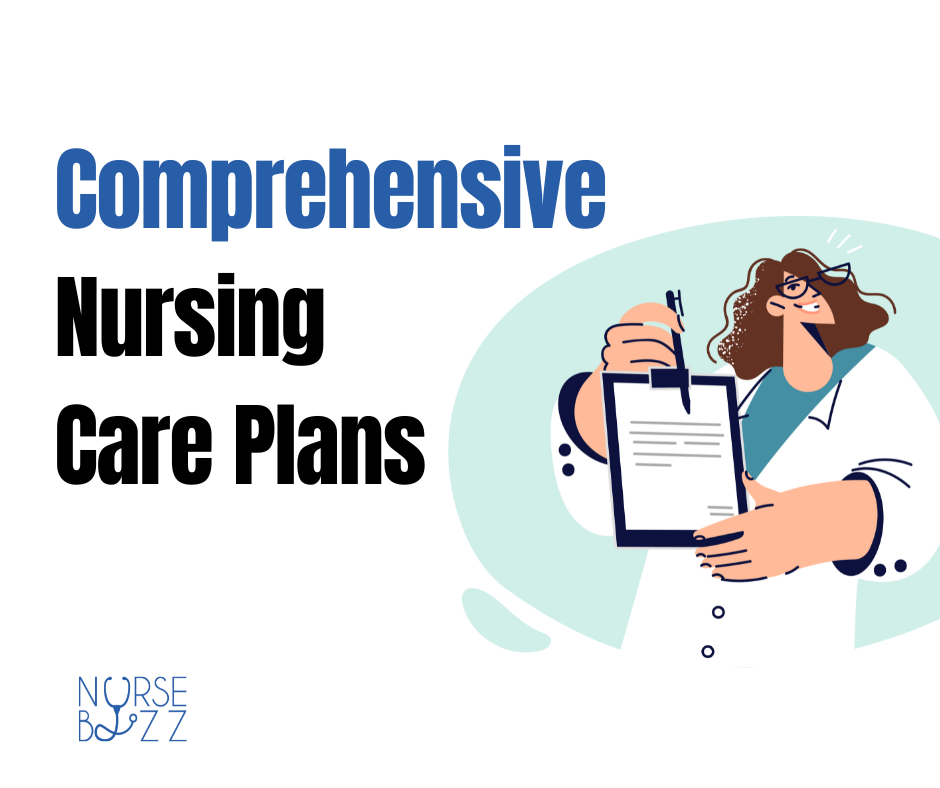Looking for pediatric student nurse jobs? Explore opportunities in child-focused healthcare and start your journey today.
Are you a nursing student in need of pediatric student nurse jobs? Do you have a passion for making a difference in the lives of children in need? If so, you’re on the right path to an incredibly rewarding career. Pediatric nursing is a field that specializes in providing care to infants, children, and adolescents. In this article, we’ll explore the world of pediatric nurse careers, pediatric nursing student jobs, and everything you need to know about becoming a pediatric nurse.
1. The Role of Pediatric Student Nurses

Pediatric nurses are essential in child healthcare. They provide care, support, and unique communication skills that aid in children’s recovery. Here’s their pivotal role:
- Specialized Care: Pediatric nurses are specialized in providing care to infants, children, and adolescents. Their primary focus is on young patients’ unique needs and health challenges. This specialization allows them to develop expertise in caring for children and understanding their developmental stages.
- Supportive and Empathetic: pediatric student nurse jobs are known for their empathetic and caring approach. They not only tend to their patients’ physical well-being but also offer emotional support. They help children and their families navigate the often stressful and frightening experience of illness or injury.
- Communication Skills: Pediatric nurses rely on strong communication skills as a fundamental aspect of their role. They must be able to communicate with children of all ages, from infants to teenagers, in a way that is reassuring and easy to understand. This helps build trust and ensures the child is comfortable during medical care.
- Family-Centered Care: Careers in pediatric nursing acknowledge the crucial role that families play in a child’s overall well-being and health. They work closely with parents and caregivers, involving them in the child’s care and providing education on managing health conditions at home.
- Medical Knowledge: Pediatric nurses have a solid understanding of pediatric medical conditions, treatment protocols, and the administration of medications to children. Being detail-oriented and exact in their responsibilities is imperative for pediatric nurses to guarantee the safety and welfare of their young patients.
- Advocates for Children: Pediatric nurses often advocate for their young patients. They ensure that the child’s needs are met and that the medical team considers their unique requirements when making decisions about their care.
- Versatile Work Environments: Pediatric nurse careers can work in various settings, including children’s hospitals, pediatric clinics, general hospitals with pediatric units, and even in home healthcare. Their adaptability allows them to provide care in diverse environments.
- Growth in Pediatric Specialties: The field of pediatric nursing student jobs is continuously evolving, with various specialties emerging, such as pediatric oncology, pediatric cardiology, and pediatric critical care. This allows pediatric nurses to focus on specific areas of expertise.
2. Demand and Growth

The demand for pediatric student nurse jobs is on the rise. The healthcare sector consistently looks for committed professionals to address the unique requirements of pediatric patients. With advancements in medical care, more children are surviving complex medical conditions, which increases the demand for pediatric nursing services.
Read About: What to Keep in Mind When Dating a Male Nurse
The U.S. Bureau of Labor and Statistics predicts that there will be a big 26 percent increase in the demand for nurse practitioners by 2028, which means there will be around 16,900 new jobs in the next ten years. Currently, as per data from the American Association of Nurse Practitioners (AANP), there are more than 290,000 licensed nurse practitioners in the United States. However, surprisingly, only about 3.7 percent have special training in caring for kids.This reveals a serious problem: there’s a significant shortage of nurses in various parts of the U.S.
Making things even more complicated, in 2017, the U.S. Census Bureau found that about 23 percent of the people in the U.S. were under 18 years old. With so many kids, there’s clearly a strong need for healthcare providers who specialize in taking care of children. But because there aren’t enough pediatric nurse practitioners, many kids can’t get the special care they need. This problem is even worse in rural areas with very few healthcare workers.
The shortage of nurses means that there is a growing demand for pediatric student nurse jobs. As more and more kids need healthcare, especially those living in rural areas, the lack of specialized nurses makes it really important to have more pediatric nurse careers available. Pediatric nursing is thus becoming an increasingly vital field to bridge this gap in care provision for children across the nation.
3. Types of Pediatric Student Nurse Opportunities

Photo by: https://www.pinterest.com/pin/706220785338310583/
- Children’s Hospitals: Many pediatric nursing students find their calling in children’s hospitals. Such facilities are wholly devoted to delivering comprehensive care for children with a broad spectrum of medical requirements, spanning from regular check-ups to intricate surgical procedures. Working in a children’s hospital exposes pediatric nurses to diverse cases and a multidisciplinary healthcare team, offering an enriching learning experience.
- Pediatric Clinics: Pediatric clinics are specialized healthcare centers that focus on the outpatient care of children. Pediatric nursing students who choose to work in these settings often find themselves providing primary care, immunizations, and health education to young patients. The advantage of pediatric clinics is the opportunity to develop ongoing relationships with families and observe the growth and development of children over time.
- Home Healthcare Services: Pediatric nursing students may opt to work in home healthcare, where they provide care to children in the comfort of their own homes. This setting can be particularly beneficial for children with chronic illnesses who require ongoing medical attention. Pediatric nurses in home healthcare often work closely with parents and caregivers, teaching them how to manage their child’s health effectively.
- School Nursing: School nursing is another avenue for pediatric nursing students. School nurses provide healthcare services within educational institutions, offering immediate care to students who become ill or injured during the school day. They also play a crucial role in promoting public health through initiatives like immunization programs and health education.
- Pediatric Intensive Care Units (PICUs): For individuals who are inclined toward more challenging and critical care situations, the possibility of working in a pediatric intensive care unit (PICU) is available. Here, pediatric nursing student jobs are involved in caring for critically ill or injured children. It’s a challenging yet rewarding environment that requires quick thinking and precise medical care.
- Specialized Pediatric Areas: Pediatric student nurse jobs offers a wide range of specialized areas, such as pediatric oncology, pediatric cardiology, and pediatric neurology. These areas allow students to dive deeper into specific health conditions and provide specialized care to children with complex medical needs.
4. Qualifications and Requirements

Embarking on a career in pediatric nursing requires a clear understanding of the qualifications and requirements that set the foundation for this vital profession. From education to licensing and crucial skills, this section outlines the steps to becoming a dedicated pediatric nurse.
- Educational Path: To embark on a career in pediatric nursing, you typically begin by completing a nursing program. Many pediatric nurses start with a Bachelor of Science in Nursing (BSN) degree, which is a four-year program. Others may enter the field with an Associate Degree in Nursing (ADN), which is typically a two-year program. However, having a BSN can open up more opportunities for career advancement.
- Licensing: After completing your nursing program, you must become a registered nurse (RN) by passing the NCLEX-RN (National Council Licensure Examination for Registered Nurses) exam. This licensure is essential for practicing nursing in the United States.
- Clinical Rotations and Internships: Gaining practical experience in pediatric student nurse jobs is crucial. Nursing students typically participate in clinical rotations and internships during their education. These experiences expose students to various aspects of nursing, including pediatric care, and provide opportunities to develop hands-on skills.
- Certifications: While certification in pediatrics is not mandatory, it can enhance your qualifications and career prospects. The Pediatric Nursing Certification Board (PNCB) and the American Nurses Credentialing Center (ANCC) offer certifications for pediatric nurses. These certifications demonstrate your expertise in pediatric nursing and can be an advantage in job applications.
- Continuing Education: Nursing is a field that requires lifelong learning. To stay current with advancements in healthcare, pediatric nurses often engage in continuing education. This can include attending conferences, workshops, and courses related to pediatric healthcare.
- Soft Skills: In addition to clinical and technical skills, pediatric nurses should possess excellent communication and interpersonal skills. Being compassionate, patient, and empathetic is crucial when working with children and their families. Pediatric nurses must also demonstrate adaptability and the capacity to manage the emotional challenges that can arise in the course of their profession.
- Background Checks and Immunizations: Many healthcare facilities, especially those that serve children, require background checks and proof of immunizations to ensure the safety of young patients.
- State Requirements: Nursing licensure and regulations can vary from state to state. It’s important to be aware of the specific requirements in the state where you intend to practice.
- CPR Certification: Many employers require pediatric nurses to have current certification in Basic Life Support (BLS) and Pediatric Advanced Life Support (PALS) from the American Heart Association.
- Professional Organizations: Joining professional organizations, such as the Society of Pediatric Nurses or the National Association of Pediatric Nurse Practitioners, can be beneficial for networking, access to resources, and staying updated on industry trends.
5. Benefits of a Career in Pediatric Nursing

Choosing a career in pediatric nursing is incredibly rewarding. You’ll make a profound impact on children’s lives, experience emotional fulfillment, and witness their resilience. Here’s why it’s such a fulfilling career:
- Emotional Fulfillment: Pediatric nursing is a highly emotionally rewarding career. You have the unique opportunity to make a substantial difference in the lives of children and their families during some of the most trying moments they may encounter. The sense of fulfillment that comes from helping young patients on their journey to recovery is truly extraordinary.
- Witnessing Resilience: Pediatric nurses often witness the remarkable resilience of children. Even in the face of illness or injury, children exhibit an incredible ability to adapt and persevere. Being a part of their healing process and watching them regain their health and vitality can be heartwarming.
- Building Relationships: As a pediatric nurse, you have the opportunity to build lasting relationships with young patients and their families. You become a source of support, comfort, and trust during their medical journey. These connections often lead to a strong sense of camaraderie and trust.
- Diverse Challenges: Pediatric nursing is a dynamic field with diverse challenges. From caring for newborns to adolescents, each age group presents unique healthcare needs. This diversity keeps the job interesting and allows you to continually expand your skill set.
- Professional Growth: Pediatric nursing offers numerous opportunities for professional growth. With increasing experience and expertise, you have the opportunity to progress into specialized areas within the field of pediatric healthcare, such as pediatric oncology, cardiology, or intensive care. Further education and certifications can also lead to advanced roles, including becoming a pediatric nurse practitioner.
- Educational Role: Pediatric nurses often play an educational role, not only with patients but also with their families. You have the chance to empower parents and caregivers with the knowledge they need to support their child’s health and well-being. This aspect of the job contributes to a sense of making a lasting impact.
6. Conclusion
In conclusion, finding opportunities in pediatric student nurse jobs is a noble path that offers an array of fulfilling experiences. If you have a genuine interest in making a difference in the lives of children, consider pursuing a career in pediatric nursing. The demand is high, the growth is promising, and the satisfaction of knowing you’ve contributed to the well-being of young patients is immeasurable.
FAQs for Pediatric Nursing

1. What are the differences between pediatric nurses and adult nurses?
Pediatric nurses focus on providing specialized care for infants, children, and adolescents, which requires different skills and knowledge. They are trained to communicate effectively with young patients and provide care tailored to their needs.
2. Where do pediatric nurses work the most?
Pediatric nurses can be found in children’s hospitals, pediatric clinics, general hospitals with pediatric units, and even in home healthcare settings, depending on their preferences and expertise.
3. How do I become a pediatric nurse practitioner?
To pursue a career as a pediatric nurse practitioner, it is generally required to complete a bachelor’s degree in nursing, become a registered nurse (RN), and pursue advanced degrees and certifications in pediatric nursing.
4. How many years is it to study Pediatric Nursing?
The duration of pediatric nursing education can vary, but typically, a Bachelor of Science in Nursing (BSN) takes four years, and advanced degrees may require additional years of study.
5. How much do pediatric nurses get paid?
Pediatric nurses typically earn salaries comparable to the average income of registered nurses in the United States. According to data from the U.S. Bureau of Labor Statistics (BLS) for 2022, the annual average wage for registered nurses was approximately $81,220.
In contrast, ZipRecruiter reports that as of October 11, 2023, the typical yearly earnings for a Pediatric Registered Nurse in the United States amount to approximately $134,116. These differences in numbers emphasize that the potential salaries for pediatric nurses can vary widely. The variations depend on factors like where they work, how long they’ve been in the field, and their specific jobs in pediatric nursing.




